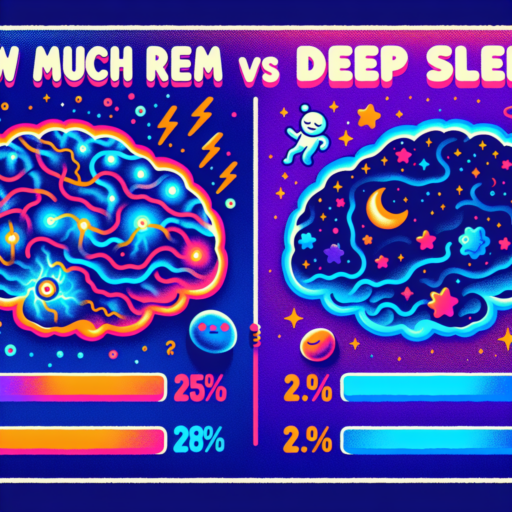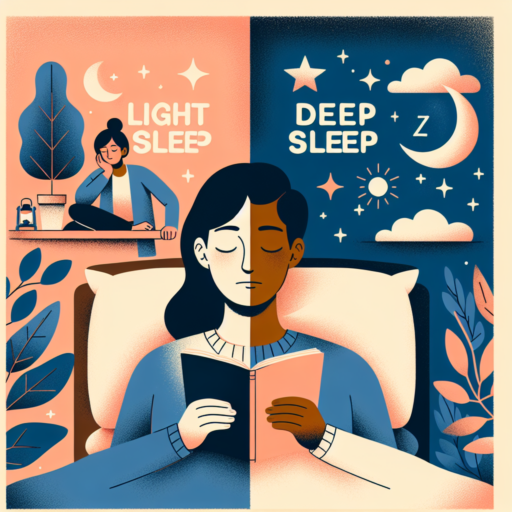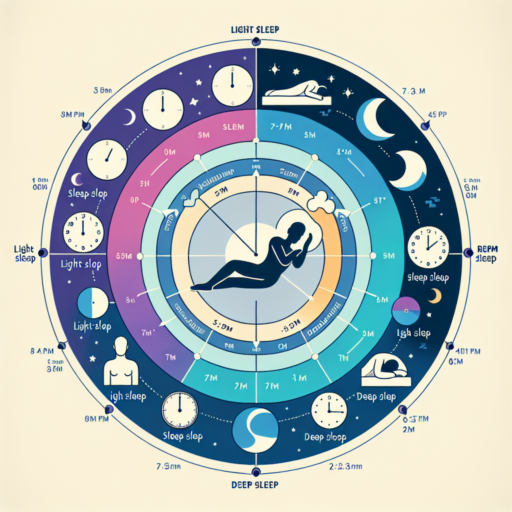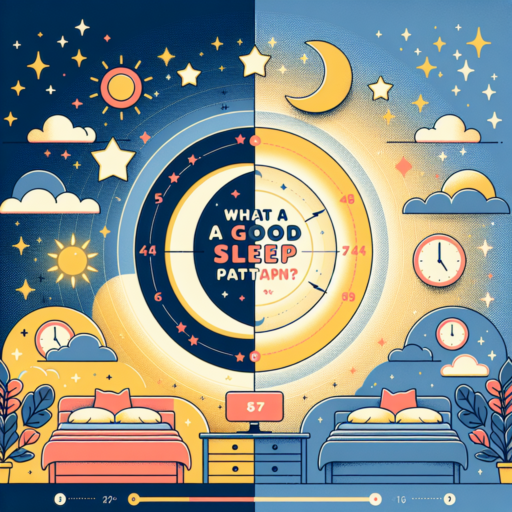Is it better to have more REM or deep sleep?
Understanding the differences between REM (Rapid Eye Movement) sleep and deep sleep is crucial for appreciating the nuances of sleep quality and its impact on health. Both stages play vital roles in cognitive functions and overall well-being.
Importance of REM Sleep
REM sleep is characterized by rapid movement of the eyes, increased brain activity, and vivid dreams. It is crucial for memory consolidation, processing of emotions, and supporting cognitive functions. Having adequate amounts of REM sleep is associated with improved problem-solving skills and creativity. REM sleep aids in the emotional regulation and adaptation of learned tasks, making it essential for mental health.
Benefits of Deep Sleep
Deep sleep, or slow-wave sleep, is the most restorative stage of sleep. During this phase, the body repairs muscles and tissues, stimulates growth and development, boosts immune function, and builds up energy for the next day. Deep sleep is fundamental for physical revitalization and plays a significant role in hormone regulation. Lack of deep sleep can lead to reduced stamina and increased susceptibility to illnesses.
While both REM and deep sleep stages are integral to a healthy sleep cycle, the balance between them can vary depending on individual needs and life stages. Emphasizing the importance of overall sleep quality and maintaining a regular sleep schedule is key to achieving the right mix of REM and deep sleep for optimal health and well-being.
What is a good amount of deep sleep?
Understanding the appropriate amount of deep sleep you require is crucial for cognitive function and overall health. Deep sleep, or slow-wave sleep, is essential for your body’s recovery process, aiding in everything from memory consolidation to the repair of tissues. Adults typically need 20-25% of their total sleep to be deep sleep. This means, for an average adult who sleeps 8 hours a night, approximately 1.6 to 2 hours should be spent in deep sleep.
Determining Your Deep Sleep Needs
The exact amount of deep sleep can vary significantly from one individual to another, influenced by factors such as age, lifestyle, and overall health. For instance, children and teenagers require more deep sleep, up to 40% of their sleep time, to support their development and growth. As you age, your need for deep sleep decreases, but its importance remains. Monitoring your sleep through wearable technology or a sleep study can provide insights into your sleep patterns, helping you understand if you’re getting enough deep sleep.
Maximizing Your Deep Sleep
To enhance the quality of your deep sleep, consider establishing a regular sleep schedule, creating a restful sleeping environment, and avoiding stimulants close to bedtime. Incorporating relaxation techniques, such as meditation or deep breathing exercises before bed, can also promote deeper sleep. Regular physical activity has been shown to increase the amount and quality of deep sleep, though it’s best to avoid intense exercise close to bedtime as it might interfere with your sleep cycle.
In summary, while the recommended amount of deep sleep falls around 20-25% of your total sleep time, personal factors can influence your specific needs. Paying attention to your body’s response to different amounts of sleep and making adjustments to your sleep hygiene can help you determine the optimal amount of deep sleep for your health and well-being.
How many hours of REM sleep do you need?
The amount of REM sleep an individual requires can vary significantly based on several factors, including age, activity levels, and overall health. REM sleep, or Rapid Eye Movement sleep, is a crucial phase of the sleep cycle known for being the stage in which most dreams occur. It’s during REM sleep that the brain processes and consolidates memories, making it vital for cognitive functions such as learning and creativity.
For adults, REM sleep typically accounts for about 20-25% of total sleep time. This translates to approximately 1.5 to 2 hours of REM sleep per night for someone sleeping a healthy 7-9 hours. However, this figure can fluctastically change with age; for instance, infants might spend about 50% of their sleep in the REM stage. It’s important to note that obtaining enough REM sleep is key to maintaining emotional and mental health, as well as supporting neurological development, especially in younger individuals.
Enhancing the quality of your sleep can directly impact the quantity and quality of REM sleep. Practicing good sleep hygiene, maintaining a consistent sleep schedule, and managing stress are vital components to increase REM sleep. Avoiding stimulants such as caffeine close to bedtime can also promote longer, undisturbed REM sleep phases.
Is 4.5 hours of deep sleep too much?
The amount of deep sleep an individual requires can vary widely, but understanding whether 4.5 hours of deep sleep is excessive is crucial for optimizing restorative sleep patterns. Deep sleep, the most rejuvenating stage of sleep, plays a pivotal role in health and well-being. It’s during this stage that the body repairs tissues, builds bone and muscle, and strengthens the immune system.
When considering if 4.5 hours of deep sleep is too much, it’s essential to look at the broader context of sleep cycles. Typically, deep sleep occupies about 13-23% of sleep in adults, translating to approximately 62 to 110 minutes for an average 8-hour sleep duration. This suggests that achieving 4.5 hours of deep sleep might far exceed average norms, potentially indicating an imbalance or a sign of an underlying health condition.
However, without proper context, such as individual health status, lifestyle factors, and overall sleep quality, determining the appropriateness of 4.5 hours of deep sleep can be challenging. It’s important to monitor other aspects of sleep and daytime functioning to assess the impact of such an extensive amount of deep sleep. Moreover, consulting with a sleep specialist could provide insights into whether this amount of deep sleep is beneficial or problematic for your specific situation.






